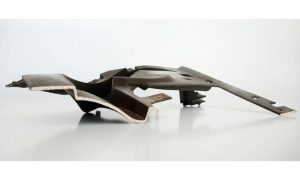As auto parts makers experiment with new materials to cut vehicle weight and reduce their environmental footprints, French interiors supplier Faurecia has turned to plant materials to do both.
Using a type of hemp, Faurecia is experimenting with producing injection-molded auto parts that reduce its reliance on plastics.
“Right now we’re facing a lot of different regulations regarding CO2 emissions,” says Laurence Dufrancatel, Faurecia’s innovation and materials global domain manager.
“One of the best ways to curb emissions is to lightweight. But we can do this through an injection process and compression that uses plant material.”
Faurecia’s ultimate aim is to stay ahead on lightweighting, Dufrancatel says. But if it can do that while simultaneously eliminating plastics, so much the better.
One of the injection molding efforts centers on a product Faurecia calls NAFILean, which it developed in 2010.
It uses hemp-based fibers and recyclable polypropylene to produce an injectable material that can form instrument panels, interior door panels and center consoles, while reducing their weight.
NAFILean parts have been in production since 2013 on the Peugeot 308. It has 25 percent weight savings compared with typical plastic-based technologies, and 20 percent savings on its overall footprint, according to Dufrancatel.
At the end of 2016, Faurecia developed the next generation of the material, which it calls NAFILite. NAFILite is an injection-molding foam, reinforced with NAFILean’s hemp fibers.
The material is injected into a part, where it expands and stiffens. Dufrancatel says the process creates increased part resistance, while requiring less injected material and better weight savings.



